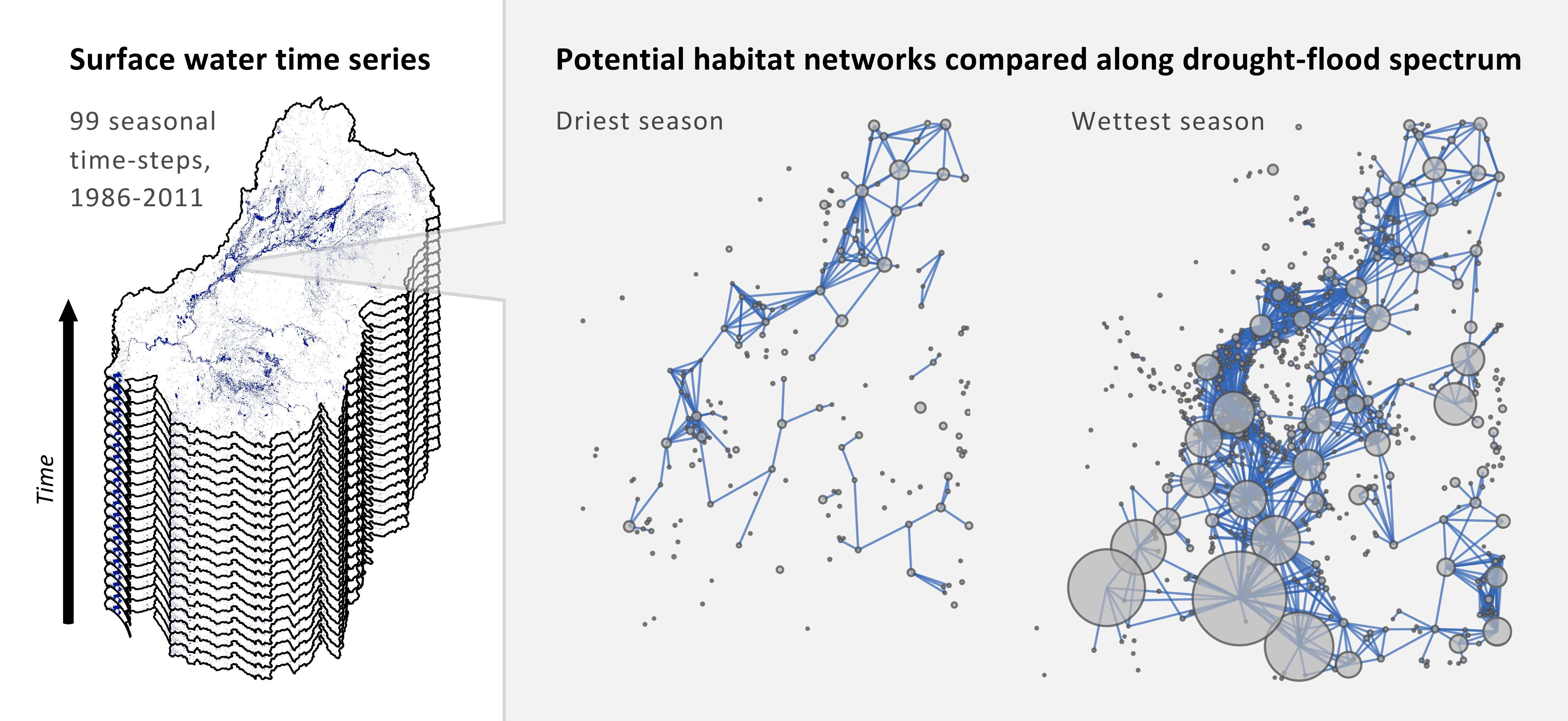Robbi's 3rd PhD paper, titled 'Impact of hydroclimatic variability on regional-scale landscape connectivity across a dynamic dryland region' has been published in Ecological indicators, which you can read here
Summary of our findings:
- Extreme hydroclimatic conditions (i.e. drought and flooding) can impact dryland surface water ecosystems by altering landscape connectivity, or the ability of organisms to move or disperse through their fragmented habitat networks
- We combined a newly available 25 year surface-water time series (Tulbure et al. 2016) with advanced graph theory ‘habitat availability’ metrics to assess how changes in the availability and distribution of surface water through time and space affect landscape connectivity at regional scales
- We focused on Australia’s Murray Darling Basin (MDB), a globally significant and dynamic semi-arid region recently affected by two unprecedented hydroclimatic extremes: the 1997–2010 Millennium Drought and 2010–2012 La Niña floods
- Across our study area, surface water habitat network structure provided resistance to drought, with connectivity consistently decreasing more slowly than surface water habitat area during dry extremes
- Conversely, flooding played a critical role in facilitating regional-scale connectivity, with connectivity increasing by up to two orders of magnitude between the driest and wettest seasons in our time series – a rate that far outstripped any increase in surface water habitat area
- Our graph theory approach may assist in guiding conservation by providing insights into the processes driving connectivity during different phases in the drought-flood spectrum, and is directly applicable to other dynamic global regions faced with increasing hydroclimatic variability
Article reference:
Bishop-Taylor, R., M.G. Tulbure, M. Broich. (2017). Impact of hydroclimatic variability on regional-scale landscape connectivity across a dynamic dryland region. Ecological Indicators. https://doi.org/10.1016/j.ecolind.2017.07.029

News date:
September 2017 